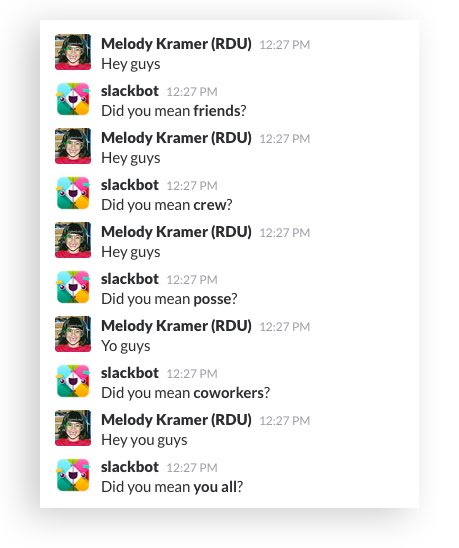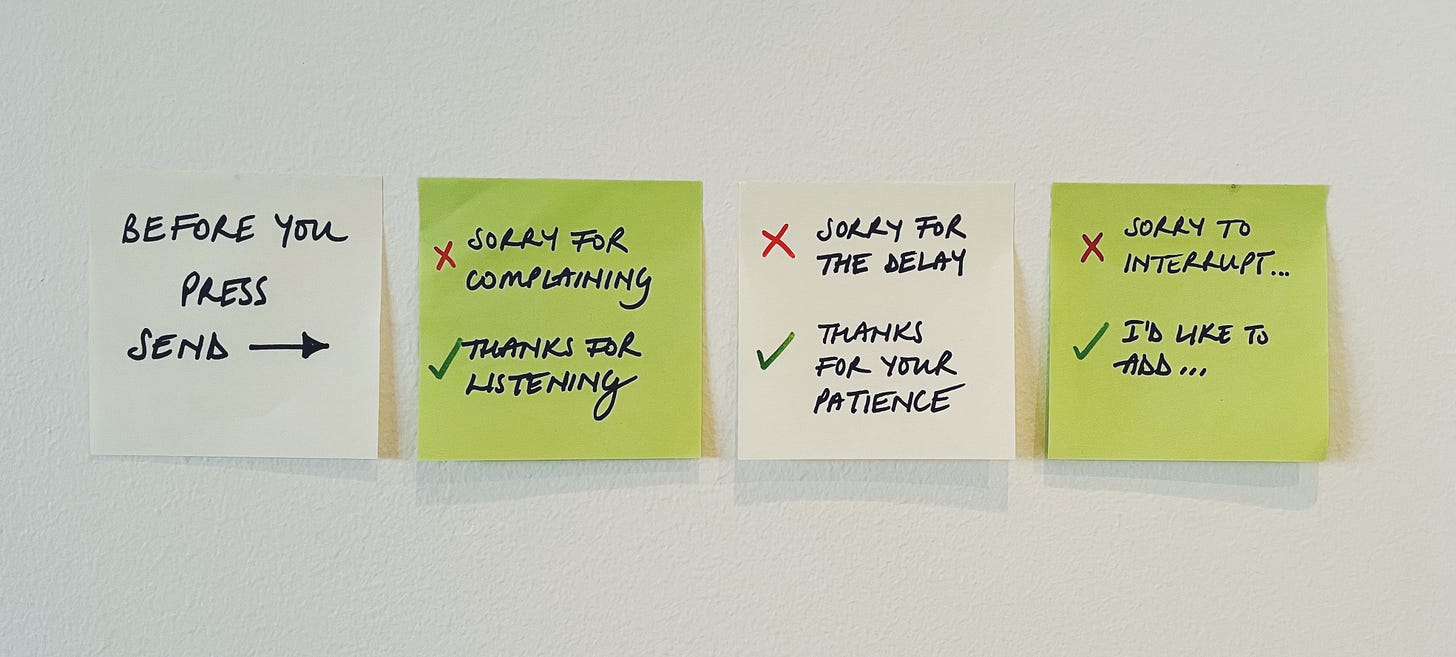Welcome to Pass It On—a newsletter bringing the tech and non-profit sectors closer together through knowledge sharing, written and edited by Lauren Crichton.
—
It's our first issue of 2021, the year we've all been so eager to welcome into our lives. I hope you've been able to spend the Holidays in the way you needed them most.
The first week of January is often a time to make promises to ourselves and commit to change. Alongside personal resolutions, the new year also tends towards organisational resetting. We devise strategies, set goals, draft plans, all of which usually require a lot of team discussion.
I've never been much of a fan of ambitious resolutions, but I believe in the cumulative power of small habits, especially in these times. Over the past 18 months or so, I've been forming some linguistic habits–little positive tweaks to common but inherently negative phrases–that make my conversations at work more constructive and collaborative. In this week’s knowledge share, I’m listing four of my favourites with tips for inspiring your organisation to follow suit.
💬 Linguistic habits
From "But what about X" to "I'd like to build on X"
I picked this one up in a workshop with an innovation agency called Augur. To cultivate as collaborative an environment as possible, they asked us to use the verb build when responding to another person's idea. Unlike but, build is constructive and invigorating—exactly what you need when you want people to be creative. It's an excellent prompt, too: "would anyone like to build on Charlie’s comment?"
If you’re running that big 2021 kick-off workshop over the next week or so, why not introduce this habit to your team or clients at the start, just like Augur did?
From "Yes, but" to "Yes, and"
Yes, and is the ideal complement to build, especially in group workshops. When you're trying to solve a problem, you want to explore many possible solutions before narrowing things down. Yes, and embraces that open-minded principle. For those sceptical about suspending judgment completely, there's also yes, but, and which involves acknowledging the other person’s idea (yes) and providing constructive feedback (but) before suggesting a way to overcome it (and).
As remote working becomes normalised and more organisations are running on messaging-based tools, there are more opportunities to scale how we raise internal awareness about linguistic habits and instil change.
With Slack, for example, you can create an automated reminder that appears and offers an alternative to whenever someone posts a message including “yes, but” or similar.
From "Sorry to interrupt" to "I'd like to add"
Many of us apologise unnecessarily, especially women. Why should you be sorry for having something to say? With phrases like, "I'd like to add," you can state your desire to contribute without presenting it as an intrusion.
I first started trying to banish unnecessary sorrys from my vocabulary when I took the UPFRONT confidence course last summer. I knew women tended to over-apologise, but I hadn't appreciated the insidious ways in which sorry can harm your confidence if you don't reign it in.
Unlearning a lifelong habit is tough, but having common apologetic phrases and their alternatives as post-its near my desk have helped me catch a lot, especially in emails.
I also recommend telling some colleagues and asking them to point out any of your sorry slip-ups—not only to support you but also to spark broader behaviour change. Nearly all of the colleagues I told said they started paying more attention to their sorrys as a result of looking out for mine.
From "This is probably a stupid idea" to "Let me run with this thought for a minute"
Like needless sorrys, prefacing your thought with a qualifying statement such as “this is probably stupid” will only undermine it to both you and others before you've even shared it. Give your idea the runway it deserves.
If you’re a manager, listen out for these kinds of phrases amongst those who report to you. A more personal setting like a I:I may be just the place to point out the habit and encourage them to form a new one as part of their development.
💡PS
Remember what Lauren Currie OBE said in the last issue: speak last if you're a leader. It gives your team space to think and share more freely, amongst other advantages.
That's it! Four simple, feasible linguistic habits that you can create for yourself and your team to reap long-term benefits.
If you try out any or have some of your own you’d like to share, let me know by replying to this email or:
Join us again in two weeks for a Q&A with physicist and data scientist João Coelho, who will share his story of founding education non-profit TreeTree2 in his spare time and scaling it remotely during the pandemic.
Know someone in the non-profit sector who’d benefit from hearing about João’s experiences? Encourage them to subscribe before the next issue:
See you then,
Lauren 👋



